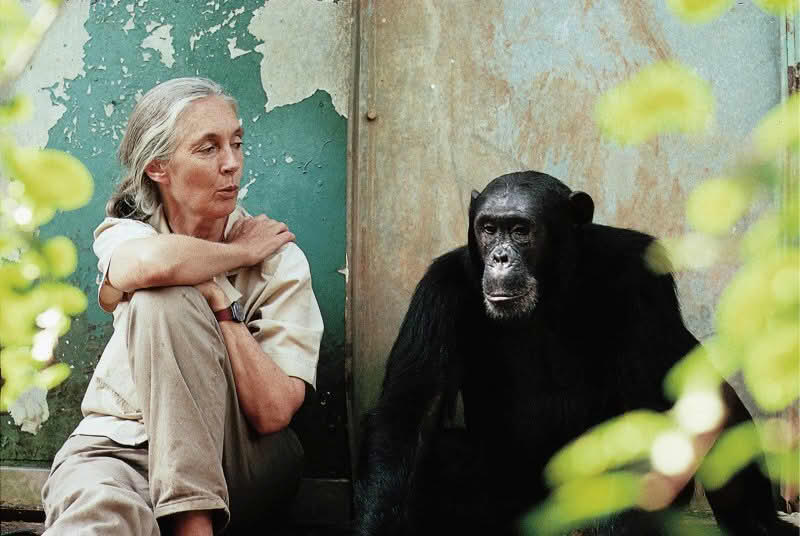
In Gombe, Jane Goodall interacts with a chimpanzee. Gombe was the location where Goodall began her research. Photo courtesy of Creative Commons.
Dr. Jane Goodall, primatologist, researcher and activist for animal welfare and gender equality, passed away in California on Wednesday.
Goodall’s death was a result of natural causes, cutting her U.S. speaking tour. Goodall began her career in 1960 when, during her PhD at Cambridge University, she took her first research trip to Gombe, Tanzania. There, she began her peaceful approach to observing primates, specifically wild chimpanzees. Her methods of gentle interaction and establishing trust are what led her to a life-long legacy of success in primatology, a hero for an undermined field of science.
Goodall’s first major discovery was that chimpanzees use tools and eat meat. After this, Goodall began to connect the animal kingdom to humans, proving a deep evolutionary link, which had challenged then-existing research about the true abilities of primates.
Additionally, she was also able to further link human development to animals, as she discovered that chimpanzees actually participate in their own form of warfare. Known as the “Four Year War,” or the “Gombe Chipanzee War,” Goodall observed the behaviors that chimpanzees and humans share in the conflict between two species of chimpanzees trying to obtain the spaces of the splinter Khama community in Gombe.
Along with her scientific breakthroughs, Goodall advocated for animal rights, starting movements against animal testing and poaching. She also worked to change perspectives by instilling the importance of wildlife, specifically apes and how advanced they truly are.
In 1977, Goodall founded the “Jane Goodall Institute,” which was a non-profit organization that fought against chimpanzees’ habitat destruction and built centers to conduct research and education.
Through all of this, Goodall also became a pioneer for feminism, as she was a female succeeding in a male-dominated field. She fought for women to have a voice in science through various books and seminars, influencing generations of women to gain interest in science and to share their voices and interests. Additionally, her activism made an impact beyond the scientific community; the JGI provided women in communities with proper healthcare and education, emphasizing the importance of reproductive care and knowledge.
Through her work, Goodall forever changed the way people viewed wildlife preservation and conservation. Without Goodall and her work, it may have taken longer to gain a deeper knowledge of primates and more representation of women in research. Goodall’s legacy lives on through the work of the Jane Goodall Institute, Gombe Stream Research Center and efforts towards wildlife conservation and advocacy.